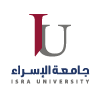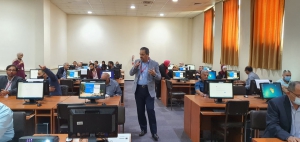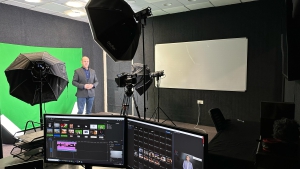Since its establishment in 1991, the Department of Architectural Engineering has been striving to achieve both the vision of the University and the College which aimed at achieving academic leadership locally and internationally and the mission to provide the local and international community with a distinguished and competent graduate in the field of architecture engineering which would contribute in developing the country.
The department offers a bachelor's degree in architecture Engineering as it adopts in applying its academic program, well-structured study plans in the fields of knowledge that conform to the standards of accreditation in order to obtain national and international quality certificates.
The study of architecture is to cope with the modern and contemporary theories and transformations in architecture based on the rich Arab cultural heritage, taking into consideration local references as sources of inspiration as well as international standards.
The department also urges its students to learn computerized drawing and design programs as well as to use them in enrichment and development their design.
The department is interested in developing the professional ability of the student to produce various designs through their belief in the need to emphasize the integrative nature of architectural design and to identify the strategic needs of architecture (cultural, social and aesthetic) dimensions based on the principles of sustainability, as well as technical, administrative and legal awareness. Department of architecture engineering at Isra University also aims to strengthen the various drawing skills of students to provide the society with professional graduates having good design, construction and project management potentials.
The message:
The departments seeks to prepare the competencies architects who professionally and ethically qualified to serve and build the community through both the implementation of distinct educational curricula and the use of advanced educational techniques and emphasize the principles of sustainable development, with the presence of highly qualified teaching staff characterized by creativity , mastery , scientific honesty and continuous development.
Department Objectives:
- To generate skilled professional architects committed to advance the field and practice; trained in analytical and critical thinking skills
- Promote professional ethics, sense of responsibility and problem solving in the built environment.
- Enable graduates to become lifelong learners and to take a leading role in the professional practice both in Jordan and the region.
- Prepare Engineers interested with construction and engineering systems and keep pace with contemporary architectural movement
Program Outcomes:
1- An ability to identify, formulate, and solve complex engineering problems by applying principles of engineering, science, and mathematics.
2- An ability to apply engineering design to produce solutions that meet specified needs with consideration of public health, safety, and welfare, as well as global, cultural, social, environmental, and economic factors.
3- An ability to communicate effectively with a range of audiences.
4- An ability to recognize ethical and professional responsibilities in engineering situations and make informed judgments, which must consider the impact of engineering solutions in global, economic, environmental, and societal contexts.
5- An ability to function effectively on a team whose members together provide leadership, create a collaborative and inclusive environment, establish goals, plan tasks, and meet objectives.
6- An ability to develop and conduct appropriate experimentation, analyze and interpret data, and use engineering judgment to draw conclusions.
7- An ability to acquire and apply new knowledge as needed, using appropriate learning strategies.







